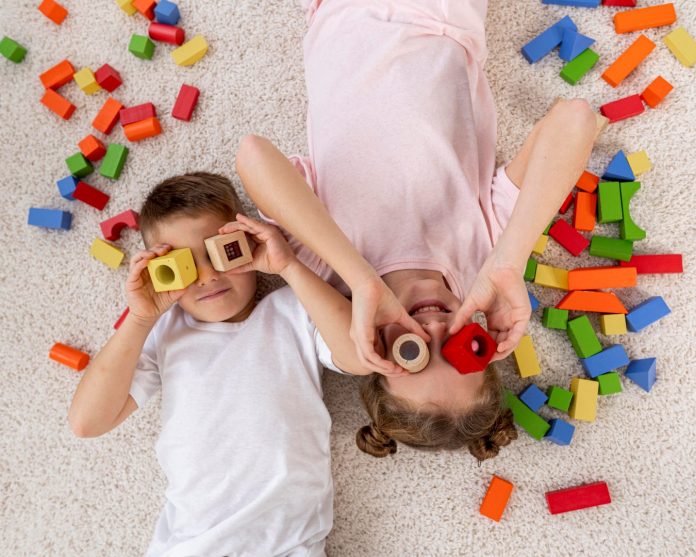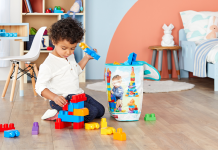As parents, we often wonder what we can do to support our child’s growth and development. One of the most important things we can do is encourage imaginative play.
Play is a part of evolutionary culture and an essential aspect of every child’s health and development. It can prepare children for the complexity of everyday life, regulate the body’s response to stress, improve overall brain structure, and promote a healthy drive for goals.
What is imaginative play?
Imaginary play, when broken down simply, is pretend play … role play … acting out tasks and plots, expressing feelings, discovering choices and experiencing the outcome of decisions in a safe, controlled environment. It’s when your child plays with various kinds of toys, and characters to create his or her own scenarios; when he or she acts like his favourite hero or character, real or imaginary. They might mimic someone they know, like a parent, friend, doctor, or teacher. It could be entirely make-believe. It’s interchangeable, dramatic, fantastic and most importantly, it’s your child making sense of this world.
What are the benefits?
There are so many benefits to imaginary play, whether it’s your child playing with sibling or a friend or when you engage with him or her in healthy, imaginative play.
Apart from improving social, emotional and language development, imaginative play:
- Encourages independence
- Increases creativity
- Improves concentration and focus
- Develops problem-solving skills
- Lowers anxiety
- Improves academic skills and increases understanding of literature
- Decreases disruptive behaviours
- Teaches children sharing skills and how to exercise logical reasoning skills
- Teaches children to express and explore feelings
- Teaches children to exercise logical reasoning skills and develops problem-solving skills

How you can encourage imaginative play?
There’s no need to spend money on new toys for pretend play. Small spaces around the house and simple things you or your child can think of will work. Find a safe space where powerful things can be revealed if you take the time to engage with your child – a tidy corner of your home or underneath the dining room table. Old sheets and cardboard boxes, clothes, Tupperware, empty paper towel rolls, dolls, mismatched socks, stuffed animals and all kinds of odd and ends can be used to create a world of fun and imaginary play.
Do yourself a favour and set aside a box of age-appropriate things that your child can turn to whenever he or she wants or needs to engage in imaginary play. Every now and then, go through the box and replace a few of these items to keep things new and exciting.
Show interest in whatever your child does during imaginary play time. Your reinforcement is vital to their self-acceptance and security. Try to play with them every day, even if it’s just for 15 minutes, and let your child run the show. If he or she struggles to come up with ideas, jot down a few on small strips of paper, fold them up and put them into a jar for those days, so they can reach in and pull out an adventure.
Arrange playdates. Using imagination with peers of a similar age is just as important as with parents but it provides other experiences.
Ideas for imaginative play
Birth to two years
- Imitate sounds, play peekaboo, read stories and sing aloud to your child.
- Put your baby in a carrier or wrap while you do housework – vacuum, sing and dance.
- Hold your baby in different positions to see the world from different perspectives.
- Show your baby bright, colourful objects in various shapes.
- Hold a mirror in front of your baby’s face and let them see and explore facial expressions.
Two to five years
- Take your child on a short walk or on an outing to interesting new places to expose them to different environments.
- Have a picnic or tea party.
- On outings, point out things and ask questions.
- Read to and sing songs with your child regularly.
- Schedule playdates.
Five to seven years
- Play school – let your child be the teacher
- Play restaurant. Let your child plan a menu and ask you for your order.
- Entertain them!
- Build with Lego or blocks.
- Sing songs and read stories.
- Explorer and discover things inside and outside in the garden.
- Be scientists and experiment with fun things at your disposal.
- Turn a cardboard box into something exciting.
- Write and illustrate a book together.






